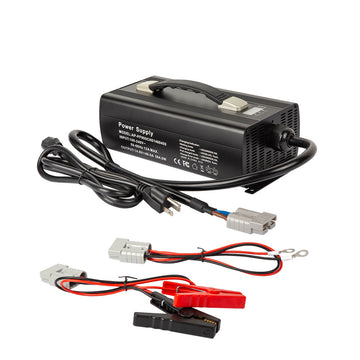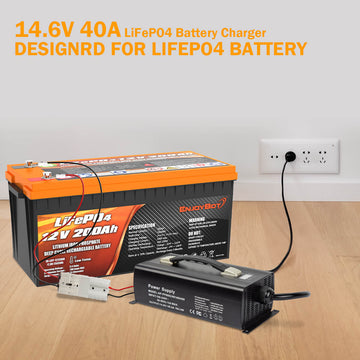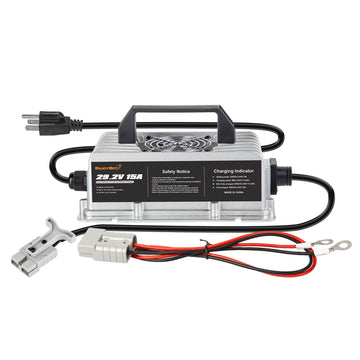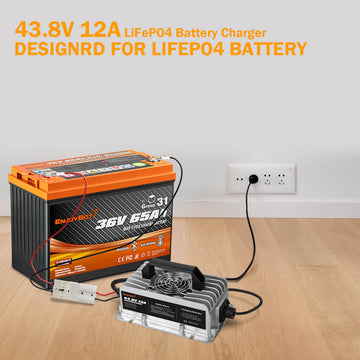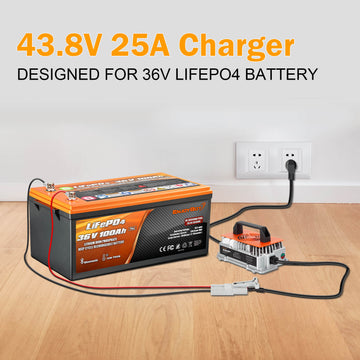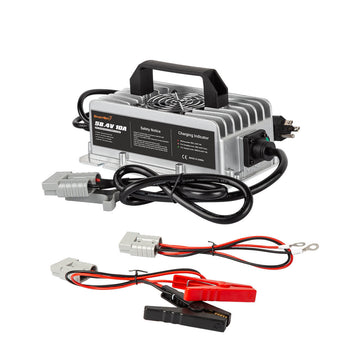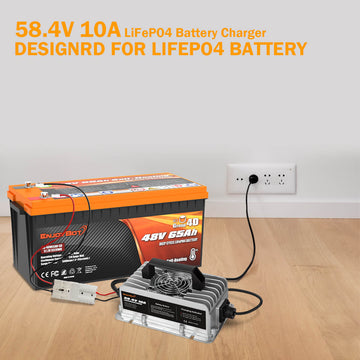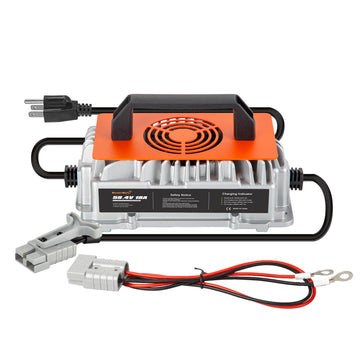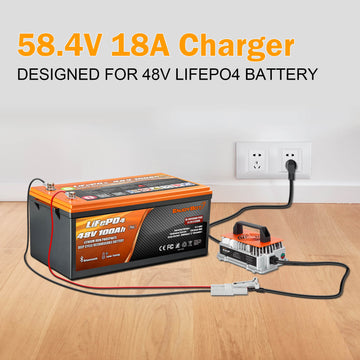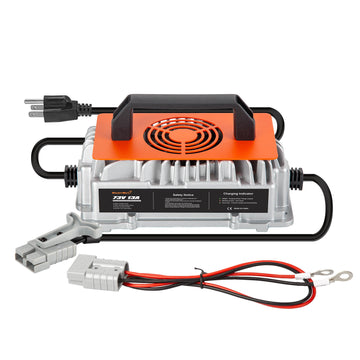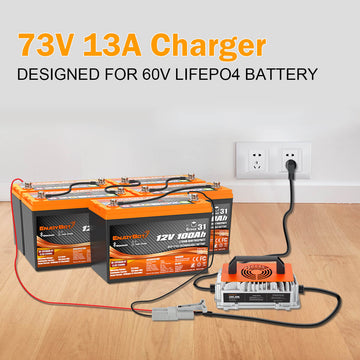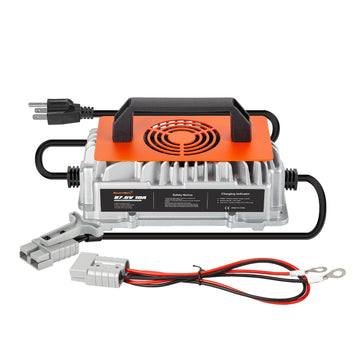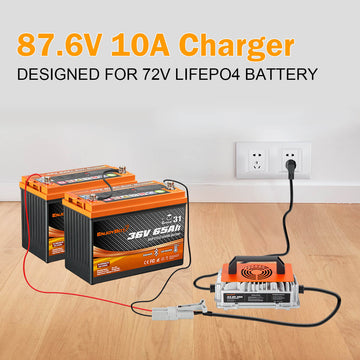What Is Backup Power and Why We Need it?
What Is Backup Power and Why We Need it?

Power outages can be a minor inconvenience or a life-and-death challenge. Unfortunately, they are becoming more common and more severe in daily life. If you are worried about the power grid’s reliability, a backup power system may be exactly what you need.
You can design a system for various uses and budgets from the suburban homeowner to the off-grid cabin resident. Let’s take a closer look.
What Is Backup Power?
If you are like most people living in a traditional home or apartment, you will draw your electricity from the power grid that your local power company maintains and operates. This is your primary source of power energy.
But what happens when your power systems aren’t working? Perhaps a wire has shorted out or you have overloaded the system. That is where backup power comes in. Backup power generally refers to various power systems that keep your lights on when the primary power fails. They also provide power to appliances and devices you might require during an outage. The energy sources you could use include wind power, solar power, battery backups, or portable or fixed generators. We will look closer at each of these options below.
How Does Backup Power Work?
This is depending on the type of system you are using, backup power can work in several ways. The most basic systems may need you to set up a generator or at least turn one on. Meanwhile, a high-end and advanced backup power may kick on automatically, ensuring an uninterrupted power flow.
Some backup power systems require adding fuel periodically or have a set amount of battery power. Advanced systems can even create their own energy source using wind or solar.
Who Uses Backup Power?
Backup power isn’t just for one type of people, business, or institution. A large and diverse group of electricity users require a reliable backup to keep the juice flowing, even when their regular power systems shut down.
At the top of the backup power list are the businesses or other organizations that can not go without power, even briefly. These include telecommunications service providers, who make local communications run on electricity. There are also hospitals that rely on a steady supply of electricity to support everything from patient emergency surgeries to life support machines.
Any critical system should have backup power, such as electrical substations or factories, where a power outage could seriously impact production or damage expensive machinery. There are also other organizations like the military, police, and fire departments. If they haven't a backup power system, the people these groups serve would essentially be helpless until the electricity came back.
Recreational users also require backup power on occasion. These include RVers, campers, especially those who live in their rigs full-time, and liveaboard boaters, who also call their boats home. While electricity is generally not as urgent for RVers and boaters as for the previously mentioned groups, these folks still rely on electricity. It powers their lights, helps them navigate, supply them cook, or even powers portable medical technology they might rely on.
There is also a large and increasing demand for backup power systems for residential use. While the requirements here are usually less dire, it can eliminate certain frustrations and expenses. Those who have repeatedly dealt with issues such as food spoiling, being unable to work, or potentially health-jeopardizing heat or cold appreciate the emergency power. Therefore, with more of our leisure time spent with electronics, unreliable power can ruin a relaxing evening!

Why Is Backup Power Important?
Backup power is a crucial resource for many reasons from your comfort and convenience life to your health.
Power Outages Can Be Frequent and Harmful
In the year 2020, the average American household didn’t have electricity for eight hours, double the time from just a few years ago. Many of us still remember the massive power outages that struck much of the northeastern United States in 2003, and more recently, Texas dealt with persistent power issues in early 2021.
Experts expect the situation is probably going to be worse. Climate change related problems may dramatically increase heating or cooling requirements in our daily life. They could also strain the nation’s electricity infrastructure and generation capabilities.
Uninterrupted Power Supply
While not every backup power system provides this benefit, many systems offer seamless power. If your central power system fails, it will immediately kick in. This means you won’t be stuck in the dark or lose access to essential equipment or systems while you set up a generator.
For medical devices, power outage can be a matter of life and death. It also prevents minor annoyances like resetting the digital clock or rebooting your network routers.
Run Critical Appliances
Many people can live without most of their electronics, but losing a crucial appliance can be uncomfortable and frustrating at best and dangerous at worst. If you have a backup power system, you can keep your refrigerator and freezer running when you got power outage with power grid. No worry about food spoilage and the expensive costs of restocking it.
In the winter, your electric furnace will keep you warm, and the electric fan or air conditioner will keep you cool in the summer. Some people rely on a water pump that won’t worry about losing access to their well water either.
Stay Connected
Staying in touch might mean that you can still open the computer while you wait for the power grid to return. Or being able to talk with your friends and relatives or call for help. In the best of situations, you can keep going about your normal life, making phone calls and browsing the internet whenever. In the worst case, you can monitor severe weather or other events and keep in touch with your loved ones.
Peace of Mind
Backup power systems mean you will not be immediately inconvenienced or thrown into chaos based on the conventional power grid’s running status. No more worries about intense storms or supply and demand leading to electrical shortages. It is not often that you can do something so straightforward to eliminate stress regarding something we rely on so strongly.
What Is the Best Backup Power Source for an Electrical Outage?
When you are planning to set up a backup power system, there are several options for generating electricity while your primary source of power is outage. Considering your situation and the strengths and weaknesses of each when picking the best for you.
Battery Backup System
This developing technology powers some or all of the circuits in your home from what is essentially a giant battery. These systems are permanently installed in your home and may also be connected to the overall electricity grid. They charge batteries when not needed and then use them when the power goes out.
Backup battery systems may be expensive, this is depending on how much electrical energy storage you need. Since battery packs are usually used in conjunction with off-grid power generation systems, they usually don't have to provide all of the electricity all of the time. They are often sized to supply critical power during times when power generation is unavailable (i.e. using solar systems during the night) or to maintain critical systems while alternative generation begins.
Backup battery systems may be expensive, this is depending on how much electrical energy storage you need. Since battery packs are usually used in conjunction with off-grid power generation systems, they usually don't have to provide all of the electricity all of the time. They are often sized to supply critical power during times when power generation is unavailable (i.e. using solar systems during the night) or to maintain critical systems while alternative generation begins. Large home systems will possibly cost thousands or tens of thousands of dollars. But for many families, this backup power system is worth the cost.
Solar Generators
Solar power is becoming an increasingly popular form of backup power source as systems become more affordable. They are an excellent choice for a completely off-grid power setup because they can continually generate electricity indefinitely as long as the sun shines.
A solar generator works with a panel or array of panels that capture the sun’s rays and convert them into electricity. The resulting electrical current typically passes through a charge controller before resting in battery packs for later use.
Unfortunately, solar systems can range from moderate to extremely expensive depending on your power needs and how often you use them. Keep in mind if it is in less sunny climates or shaded areas, you may require many panels and huge spaces to set them up.
Permanent or Fixed Generator
Generators are the most conventional form of backup power source. They have a long history of keeping the lights on when the power grid fails. You will set up a permanent or fixed generator outside your home and turn it on or off as required when the power goes out. Unlike the fully sustainable solar systems we discussed, the traditional fixed generator will need a fuel supply to operate. Additionally, traditional generators are not environmentally friendly, they will generate noise pollution and air pollution such as sulfur dioxide and electromagnetic radiation.
Portable Generator
This is the most basic of the backup power system options but it may also be the most budget-friendly. Most people are familiar with small portable gasoline-powered generators, perhaps they were popular for camping or boating in the old days. Typically, these devices will offer lower generation capacity compared to permanent generators, solar generators, or battery backups. However, they are a great option for those people who occasionally lose power and don’t require an extensive system. These users will enjoy the simple operation and relatively small storage space for this basic backup power system.
How Much Backup Power Do You Need?
This is a question that only you can truly answer. First, consider the applications –are you just trying to keep your lights on or avoid your food spoiling at home? Are you living on a boat or in an RV? Or are you designing power systems for mission-critical services like hospitals or telecom companies? The more crucial these systems are, the more power you should have. This includes both generation capacity and storage capacity.
When it comes to power usage, you can use simple math to calculate how much power you will need. Most electronic devices have listed their wattage somewhere, or you can search for the information online. Add up the total wattage of all the appliances you will want to use at the same time. Then multiply by the number of hours you will expect to use the backup power system and divide by 1000. This will give you a rough ballpark of the kilowatt-hours your system will need to store.
Conclusion
Backup power systems are a valuable power source, no matter who you are or what your power needs entail, we can't live without power. Whether you want a comfortable and convenient normal life, or a solar-powered battery backup system, or a modest portable generator, you can find a system that works for you.
Despite the preparation and cost, it will pay you back many times over while your neighbors remain in the dark!

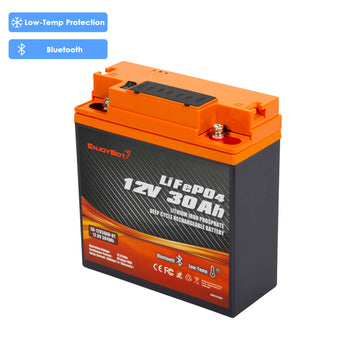
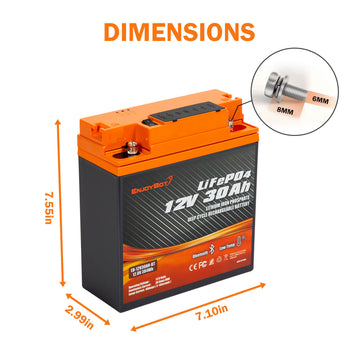
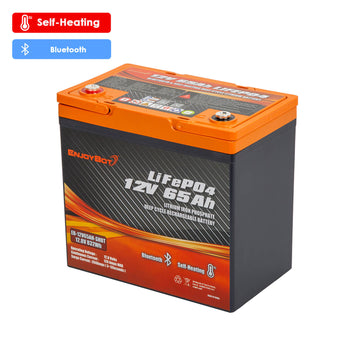
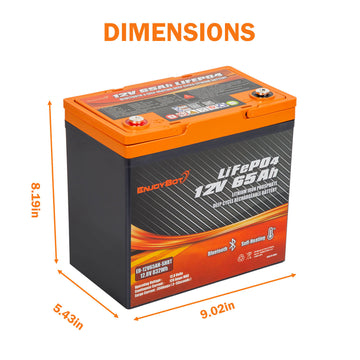
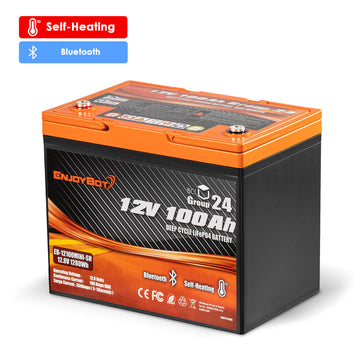
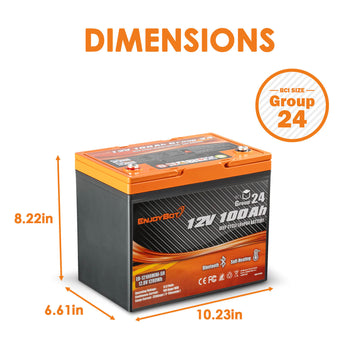

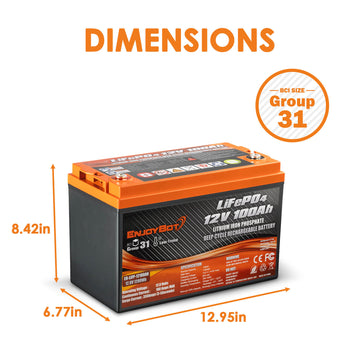
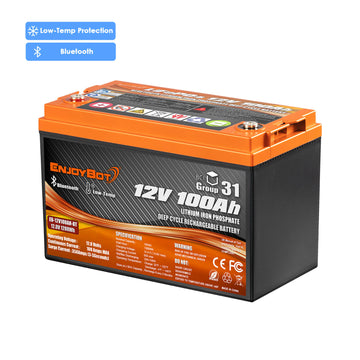
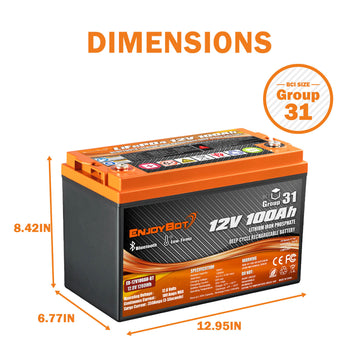

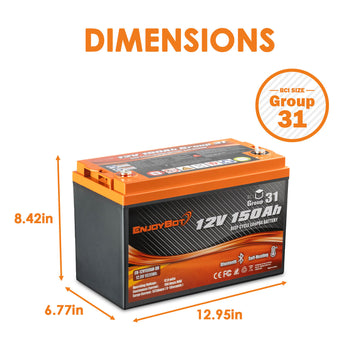




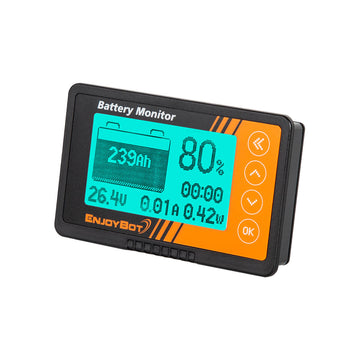
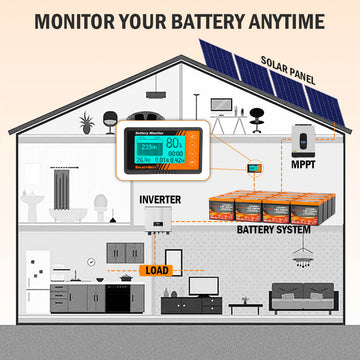
![[Upgraded Version] Enjoybot 14.6V 20A Waterproof Mountable LiFePO4 Lithium Battery Charger For 12V LiFePO4 Battery](http://enjoybotbattery.myshopify.com/cdn/shop/files/14.6V_20A_Waterproof_Battery_Charger_1_360x.jpg?v=1752565609)
![[Upgraded Version] Enjoybot 14.6V 20A Waterproof Mountable LiFePO4 Lithium Battery Charger For 12V LiFePO4 Battery](http://enjoybotbattery.myshopify.com/cdn/shop/files/14.6V_20A_Waterproof_Battery_Charger_2_360x.jpg?v=1752637374)
